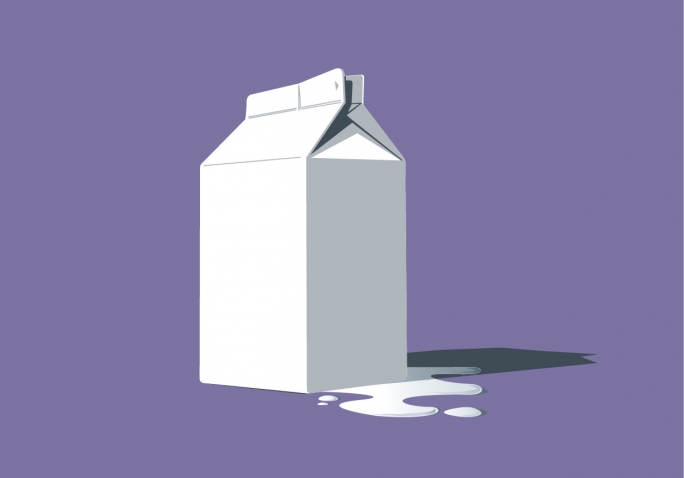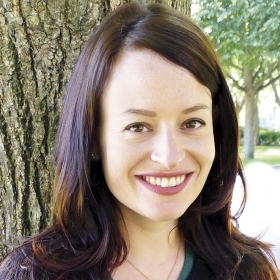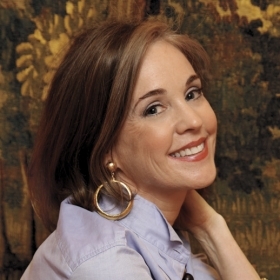I’ve timed everything exactly—clothes on, hair and teeth brushed, gym clothes by the door (hope springs eternal!), and just enough time to make a cup of coffee before I sprint to the car. The enticing aroma is already wafting from the espresso machine as I open the refrigerator door for a splash of milk. I grab the half-gallon carton … and discover there is maybe a half-teaspoon in a corner. Maybe.
I’d pitch a fit—for whom? the only people paying attention are the dogs—but I don’t want to be late.
At work, after I’ve plied myself with far-inferior corporate coffee, the phone rings.
“Um, Mom? Did you know we’re out of milk? Can you get some on your way home?”
This isn’t the post-collegiate world I’d expected to inhabit. And I’m not alone: Millions of us, after launching our cherished offspring on their horrendously expensive path to higher education, exhaled after graduation, dreaming about the dinners we wouldn’t have to cook, the laundry we wouldn’t have to do (or at least not as often), the errands we could forgo after our darlings finally grabbed their diplomas and went off into the Real World.
Except a lot of them didn’t. A shaky economy, a gruesome job market, and prohibitively expensive housing in big cities (because of course that’s where they all want to go, right?) form a trifecta that has landed our young adults back in the nest we thought was going to be empty.
And it’s been a big adjustment for everyone.
I thought the adjustment would have happened at the front end, when we dropped him off at school. Anticipating that, I talked to other parents, read books on empty-nesting, got plenty of unsolicited advice—“it will be fine, but you’ll be lonely at first”—only to discover nothing that happened as I thought it would.
I’d envisioned a lot of teary-eyed blinking when we parted (although I wasn’t sure if that would come from him or us), several longing Last Looks, and an anguished ride back to the airport the next day. What I hadn’t expected was to face him in his dorm driveway in the gathering gloom of Labor Day weekend and have him give us one hard hug—and a thank you.
“Listen, Mom, Dad, you’ve done everything you could to get me this far, and I’m really grateful. Don’t worry about me—I’m going to be fine.” He looked at us. “And you will be too.” Then he patted us on the shoulders and walked off to a dorm orientation without a backward glance.
He was right. We came home, ate what we wanted when we wanted, saw movies in the middle of the week, and caught up with him via text, email, and sometimes Skype—which was a marked contrast from how I communicated with my parents, back in the day. Then it was a phone call most Sundays—then every other Sunday, then whenever they could catch me.
When I graduated, I went home for the summer to work at the same job I’d had the summer before, and then it was off to New York, to share a drafty brownstone just off Riverside Drive before that part of Harlem was fashionable. I cannot remember ever having asked my parents for money. My roommate and I were sometimes so poor we had sardines and unsweetened tea for dinner—but we were on our own in New York, and it was fabulous. Our lives as young adults had started—on a shoestring, but still, we were on our way. There were the predictable slipups and mistakes, but we learned from them and went on.
My child has greater expectations. And it’s my fault, because I’ve given them to him. So while he looks for the job he’ll need to do for a couple of years before graduate school, he is under my roof. Most of the time, it’s a sweet deal for him: I cook, the housekeeper does his laundry when she does ours, and his domestic chores are not too onerous. He hauls trash to the curb once a week, walks the dogs several times a day, and does whatever odd jobs he’s asked to do.
He is ready to begin the next phase of his life, and soon, with persistence, he probably will. In the meantime, we are enjoying his evolution into a smart, compassionate, personable young adult. It almost makes up for the gargantuan grocery bill. He’ll be gone soon enough—but until then, I have learned to keep a box of shelf-stable milk in the cabinet.
And to enjoy not having to walk the dogs in the rain. I’m really going to miss that.
Karen Grigsby Bates ’73 is a Los Angeles-based correspondent for NPR News and the relieved parent of a 2013 graduate of Skidmore College.








We ask that those who engage in Wellesley magazine's online community act with honesty, integrity, and respect. (Remember the honor code, alums?) We reserve the right to remove comments by impersonators or comments that are not civil and relevant to the subject at hand. By posting here, you are permitting Wellesley magazine to edit and republish your comment in all media. Please remember that all posts are public.